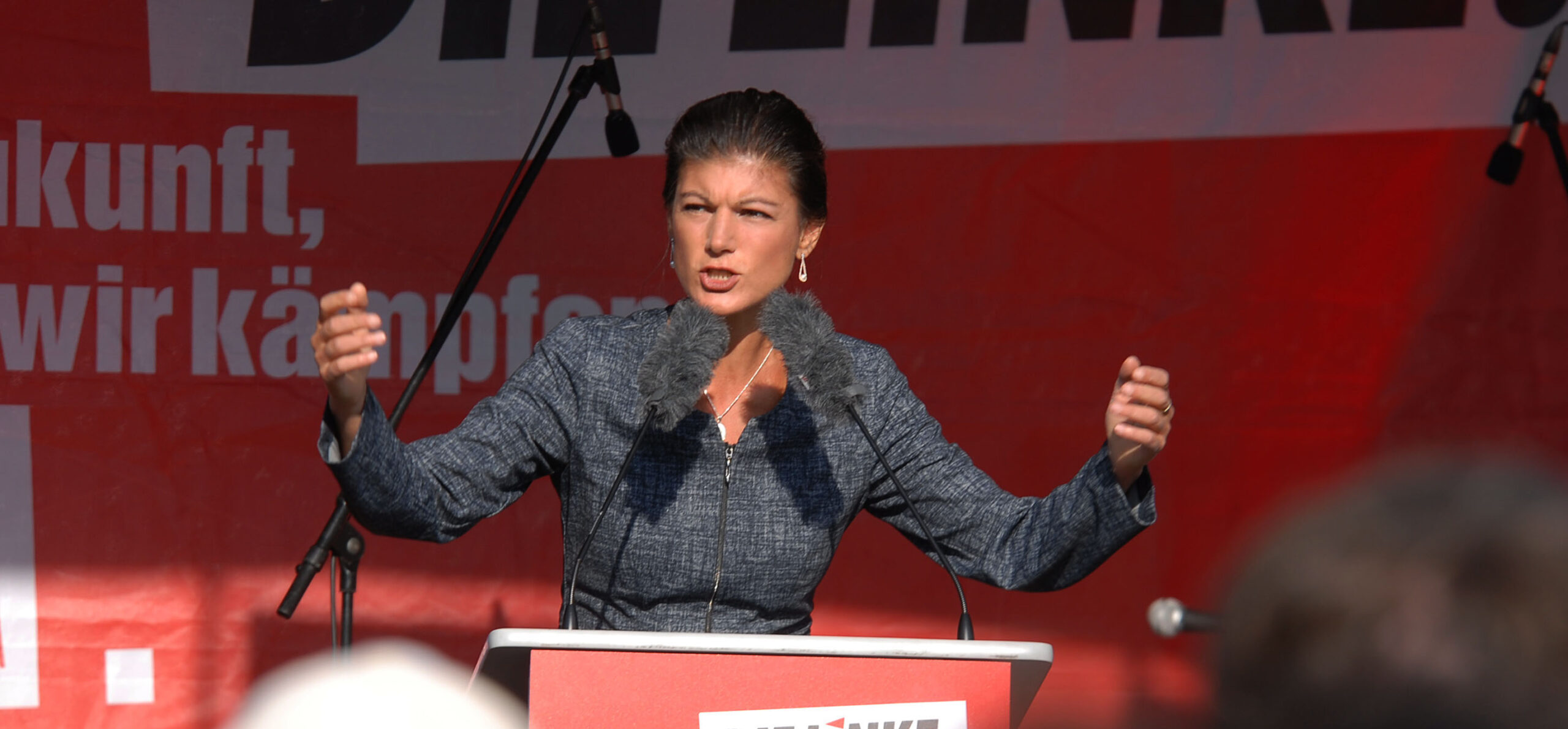Germany is in political turmoil. The ruling parties now only get around a third of the vote between them in the polls. The Right wing party Alternative für Deutschland (AfD) is consistently the second most popular option (after the centre-Right CDU/CSU). The scramble for the vote of millions of discontented Germans is well underway. Now a new party is joining the fray, one with the potential to further disrupt old political certainties.
Sahra Wagenknecht, the woman who will spearhead the new party announced today, is the dark horse of Germany’s political fringes. Until now, she has been one of the most visible politicians of the Left-wing party Die Linke, but has consistently outperformed it in popularity.
The relationship between Wagenknecht and her party has long been fraught. For one, she has criticised many of Die Linke’s sacred cows, including its stances in favour of identity politics and migration. And thanks to her frequent media appearances and intense personal charisma, she now has a sizeable following in her own right. One recent survey found that she was the most popular female politician, and that she outranked both chancellor Olaf Scholz and Friedrich Merz, leader of the biggest opposition party.
By contrast, Die Linke has only once gained above 10% of the vote in a national election. In 2021, it struggled to get above the 5% threshold to enter parliament. This should make Wagenknecht an invaluable asset to Die Linke, yet 58 of her party comrades earlier this month filed a motion to have her excluded, and this isn’t the first time they have tried.
Wagenknecht believes that many of her fellow politicians on the far-Left belong to a group she dubbed the “self-righteous” in her 2021 book of the same title. To her, identity politics is neither Left-wing nor liberal, and doesn’t serve those who face class-based or economic disadvantages. What’s more, she argues that Die Linke’s shift towards identity politics is responsible for the bad election results. Many members argue it is in fact Wagenknecht’s divisive straying from the party line that is to blame.
Rumours that Wagenknecht would jump before being pushed and take her ideas and popularity with her have long divided the party further, amid fears this would render Die Linke irrelevant. There are indeed indications that she might be able to draw votes from the far-Left but, interestingly, also from the far-Right. While her views on the economy follow traditional anti-capitalist lines, her critical views on immigration veer more towards a nationalistic form of class-driven politics, which might appeal to some on the Right. According to one survey, one in five Germans would consider voting for a Wagenknecht party. This includes 55% of current Die Linke voters and a third of AfD supporters.
Of course, founding a new party is not an easy undertaking. Wagenknecht tried before in 2018 and the project came to nothing. What’s more, her programme will reflect her own beliefs, a deeply polarising collection of convictions which don’t necessarily amount to a coherent ideological package.
I spoke to a handful of Die Linke and AfD voters in the state of Thuringia, where she probably stands to gain the most support, about a Wagenknecht party when the rumours first re-emerged. All had reservations. One said that she agrees with Wagenknecht’s “anti-woke” stance, but finds her views on Russia and the Ukraine war abhorrent. Another said he agreed with Wagenknecht that Germany shouldn’t support Ukraine and on her criticism of multiculturalism, but didn’t feel she would add anything for him that the AfD doesn’t already deliver.
Still, the formation of Wagenknecht’s new party is another warning shot to Germany’s establishment parties. With many small parties distributing the vote between them, it will be increasingly difficult to form coalitions, especially while keeping the AfD out of them. Germany shouldn’t ask itself whether this new party might help render the vote of malcontents ineffective. Rather, the most pertinent question concerns why there is demand for another brand of radical politics in the first place.











Join the discussion
Join like minded readers that support our journalism by becoming a paid subscriber
To join the discussion in the comments, become a paid subscriber.
Join like minded readers that support our journalism, read unlimited articles and enjoy other subscriber-only benefits.
Subscribe